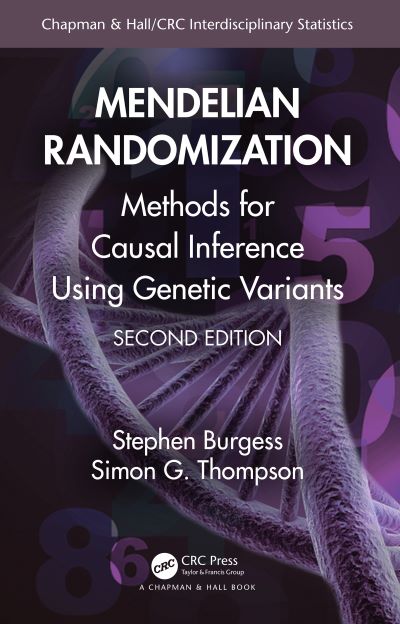Welcome to the Burgess Research Group
The next online Mendelian randomization and Genetics in Drug Development courses will be in November 2025. The registration pages for both can be found on the course pages of the website.
R package for performing Mendelian randomization with summarized data is now available on CRAN
Who we are: We are a group of statistical researchers led by Dr Stephen Burgess at the University of Cambridge, and we investigate causal links. It is well known that correlation does not imply causation, but what does? We use genetic variation as a form of natural experiment to try and find out. We take data from large biobanks to understand the causes of diseases and how to best treat them. We believe that open access to data and the power of statistics can be used for the good of everyone’s health.
In technical terms: Since 2016, our scientific group has centred around Mendelian randomization, the use of genetic variants to make causal inferences from observational data. Our tagline is “developing statistical methods that use genetic variation to answer clinically relevant questions about disease aetiology, treatment, and prevention”. Our research comprises three main streams: 1) methods development, 2) applied analyses, 3) methods dissemination.
1) Methods development: we develop innovative methods to extend the Mendelian randomization paradigm in response to the increasing availability of relevant data and to the needs of applied research.
2) Applied analyses: we partner with leading experts in different disease areas to validate and prioritize candidate risk factors as targets for intervention to improve clinical outcomes, with particular focus on cardiovascular disease.
3) Methods dissemination: we bridge the gap between methodological researchers in instrumental variables methods and applied investigators wanting to conduct studies using Mendelian randomization.
Book: Methods for Causal Inference Using Genetic Variants by Stephen Burgess and Simon G. Thompson

Second edition of the Mendelian randomization book was published in June 2021
Features
- Offers first-hand, in-depth guidance on Mendelian randomization from leaders in the field
- Makes the diverse aspects of Mendelian randomization understandable to newcomers
- Illustrates technical details using data from applied analyses
- Includes several real-world examples that show how Mendelian randomization can be used to address questions of disease aetiology, target validation, and drug development
- Discusses possible future directions for research involving Mendelian randomization
- Software code is provided in the relevant chapters and is also available on a supplementary website
This book gives epidemiologists, statisticians, geneticists, and bioinformaticians the foundation to understand how to use genetic variants as instrumental variables in observational data.
New in Second Edition: The second edition of the book has been substantially re-written to reduce the amount of technical content, and emphasize practical consequences of theoretical issues. Extensive material on the use of two-sample Mendelian randomization and publicly-available summarized data has been added. The book now includes several real-world examples that show how Mendelian randomization can be used to address questions of disease aetiology, target validation, and drug development
Link for data: https://www.dropbox.com/sh/xupi54bw3nscu6j/AAC-XVqALtxq7tA4QXtWux0na?dl=0